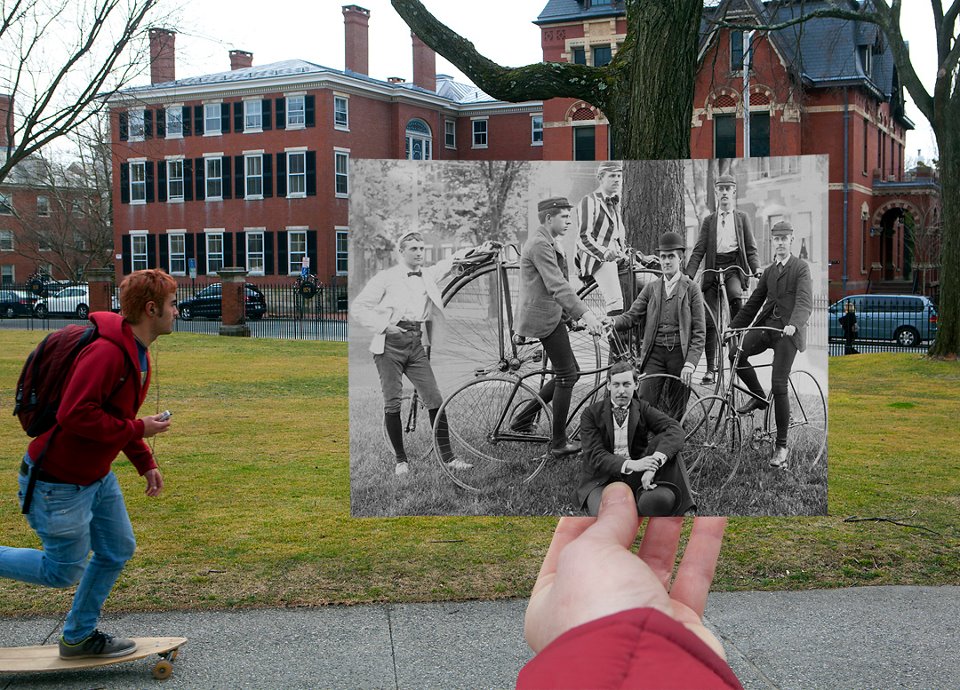College Visit Tips
The school year is almost over. And for juniors this semester is a doozy, with ACT and SAT and SAT II tests, tough courses, creative projects and performances, athletics and other extracurriculars. This coming summer is a great time to start your college tours. (Not to mention your college application videos.)
Here’s some great advice from Cliff & Sami Kramon of Collegiate Choice:
High school guidance counselors are forever urging their students to go out and visit prospective colleges. Viewbooks, course catalogs, and guide books are all helpful, but actually walking the campus listening to students while checking out the surrounding neighborhood is the best way to develop a feel for each school. Although summer might be the most convenient time to make such excursions, it is the worst time to experience a college; most smaller schools are not in session, so students and classes are absent. Dorm rooms are empty and devoid of all personal touches, making it difficult to envision oneself there. Bulletin boards, usually so revealing of the cultural and social opportunities of the college, are bare. The campus grounds, on the other hand, look neater and cleaner than they will look again the entire year. When planning a visit, call ahead to schedule a student guided campus tour. Walking around unescorted permits only seeing a group of buildings. The tour fills in the details that give each school its humanity. Many smaller schools will record your name when you schedule a tour. The benefit is that they will often hold up a tour for a few minutes if you are running late. Parking near Admissions may be a problem, so allow extra time to find a legal space. And don’t assume the tour always leaves from the Admissions Office.
A number of colleges provide an information session by an admissions officer either before or after a tour. Inquire about this when you first contact the Admissions Office. Telephone personnel do not always remember to volunteer this information. Should you have an interview, try to schedule it after the tour and information session, so you can speak knowledgeably about their school with relevant observations and questions.
The colleges are anxious to accommodate prospective students. If the student has a special request such as meeting a department chairperson, conferring with a coach, sitting in on classes, or staying overnight on campus, the Admissions Office will make the necessary arrangements provided they have sufficient advance notice.
Assume it is going to take longer to find the campus and park than a map suggests. In particular, if the student is to be interviewed, he or she wants to arrive relaxed, not frazzled. Make sure to drive around the outskirts of the campus before starting back. This could be the student’s home for the next four years; the surrounding neighborhood can make a difference. If the school is in a small town, is there a major city within a convenient drive? If not, does that really matter to the student?
The whole family should wear comfortable shoes. You will probably be doing a lot of walking both up hills and up stairs. Dress neatly. If the student is scheduled for an interview, he/she should dress for the interviewer, not for oneself. It is human nature to judge people by their appearance, so an opinion is forming about the applicant before a word is said. If parents accompany the applicant, the student should introduce them to the interviewer before the interview begins.
A college tour gives you a chance to see what is on the campus, what condition it is in, and what is missing. Is there a student center? Are there enough computer terminals scattered around campus? How are the dorms kept up? Is the library adequate? Check out the physical education facilities. Are the playing fields a part of the campus or a distance away? Where are the dorms in relation to the main academic buildings?
The tour is also the best time to ask questions of someone who is both knowledgeable and candid. Guides will entreat families to do so, as they do not enjoy providing a one-hour monologue. They are obviously pleased with the school (or they would not be giving the tour), but they are invariably honest about the drawbacks along with the positives.
Don’t ask about the student-faculty ratio. Instead, ask for the typical class size for freshmen and then for upperclassmen. If the school makes use of graduate students as teaching assistants, find out in what capacity and how often they serve. All schools say their professors are accessible to the students. See if this means just scheduled office hours or home phone numbers and coffee get-togethers. Inquire about the academic support facilities, such as a writing center where a student can have a paper looked over before it is submitted. Does the school provide tutors? Is there a fee for such additional help? Ask if housing is guaranteed all four years. At large state universities, be sure to inquire about early deadlines to secure freshman housing. If the dorms are co-ed, is it by wing, floor, or every other room. If the floor is co-ed, what about the bathrooms? Yes, some small schools allow the students in a dorm to vote for co-ed bathrooms.
Learn if there is a system of fraternities and sororities. What percentage of the student body gets involved? Do the Greeks have their own houses? When is rush? It can be as late as sophomore year or as early as a week before freshman classes begin. Are parties open or closed to the rest of the student body? Does the administration plan any major changes in the system in the near future? Besides specific, factual information, seek out your student guide’s personal opinions. How does he/she feel walking around the campus at night? How about the surrounding neighborhood in all four directions? What is the quality of faculty advising? Can an independent feel comfortable on a campus with a significant percentage of students in fraternities and sororities? How is the student turnout and spirit at sporting events? Is the student body diverse or does one type dominate? What happens on the campus on the weekends? Does it empty out or is there plenty to do? Can freshmen have cars and are cars really necessary? What outstanding professors or courses might the tour guide recommend regardless of a student’s major?
Don’t forget to pick up a course catalog. Colleges are trying to control costs, so catalogs are not automatically mailed with applications and viewbooks. While you may not have much interest in the catalog initially, it will be a valuable resource in researching a major or deciding on a particular school. Lastly, if you are beginning your search, try to visit a large state university, a smaller university, and some liberal arts colleges with 1,000 to 3,000 students. Applicants frequently alter their preferences after visiting a range of sizes.
If the family finances allow it, don’t let distance from home inhibit your choices. The United States has an extraordinary diversity of schools, and the college experience can be the best four years of your life. After you have made new friends, you will be amazed how the desire to come home diminishes. Additionally, please realize the colleges are seeking geographic diversity, and the more distant you are from the school, the more that demographic can work in your favor in the admissions process.
Best of luck in receiving nothing but acceptance letters.

